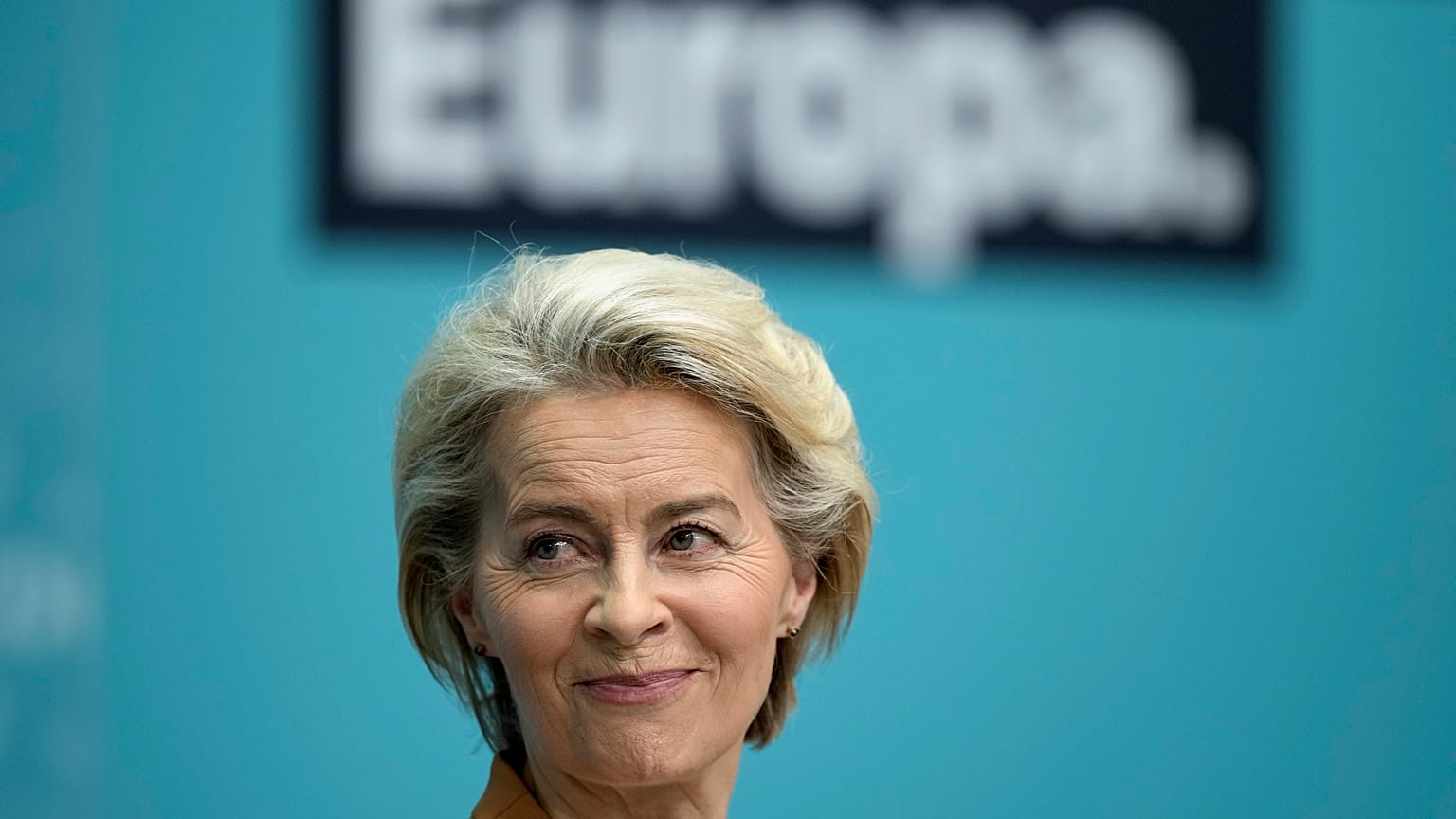European Commission President Ursula von der Leyen will soon put forward a common strategy for the EU's defence industry, designed to strengthen military production and arms supply.
Von der Leyen, who has just announced her intention to run for a second term, reiterated in an interview with Euronews her desire for more coordination when it comes to military spending by EU states.
 ADVERTISEMENT
ADVERTISEMENT
 ADVERTISEMENT
ADVERTISEMENT
"We have to spend more, we have to spend better, and I think we have to spend in a more 'European' way to consolidate our defence industrial base," she said.
The European Union takes up arms
Since the invasion of Ukraine, EU member states have considerably increased their military spending. From a total of €240 billion in 2022, it has increased to €280 billion in 2023 and will rise to €350 billion in 2024, Von der Leyen told Euronews.
According to the latest NATO data, Poland, Greece, Estonia, Lithuania and Finland are currently the European states with the highest military expenditure in relation to their gross domestic product: Warsaw's is up to 3.9 per cent, higher proportionally than even the United States.
But as Von der Leyen explains, more cooperation between the member states is needed, and the first step will be a European defence industry strategy, which the Commission will present soon.
Common strategy
The details of the plan are still unclear, but among the possible solutions are a joint arms procurement programme, similar to the one designed for Covid-19 vaccines, and even the issuance of common European debt to finance military expenditure.
Both would be major innovations, but it will not be easy to get member states to agree to them, explains Dylan Macchiarini Crosson, a researcher at the Centre for European Policy Studies, a Brussels-based think tank, to Euronews.
"At the moment there is no agreement between the EU member states, for example on the joint procurement of military equipment from third countries or private companies, carried out by the EU on behalf of the states," he said. "Even Eurobonds for defence are more of a hypothesis, without any concrete political agreement."
Some governments would like to include precise clauses in the plan. France, for example, insists that military investments should be directed to European companies, rather than buying military systems from other countries, as many EU armies do.
Greece and Cyprus, on the other hand, would like to expressly exclude purchases from the Turkish military industry.
A cornerstone of the strategy is the establishment of a European Defence Commissioner, responsible for coordinating defence policies and supporting the military industry.














